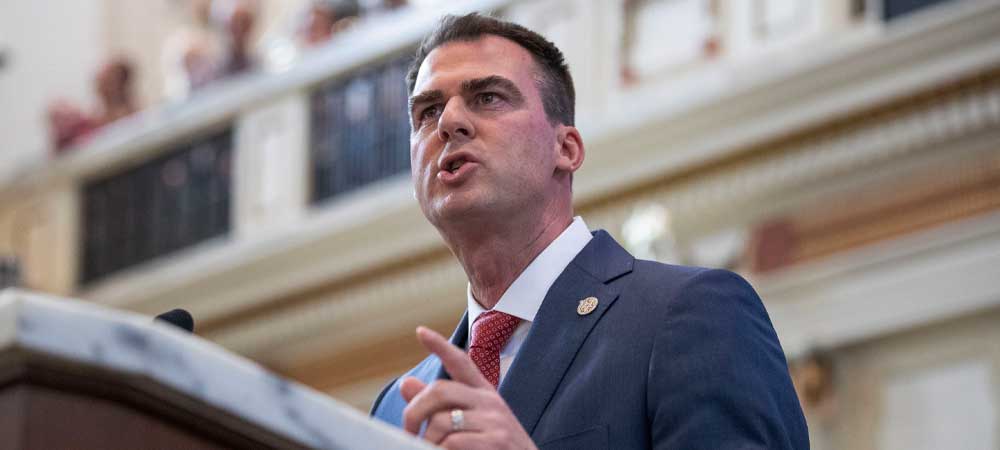- Oklahoma District Judge Timothy DeGiusti declined to issue a legal opinion on Governor Kevin Stitt’s decision to unilaterally negotiate new gaming compacts with the Otoe-Missouria and Comanche tribes.
- These new compacts legalized sports betting for the two tribes, but were met with stiff opposition from lawmakers and other tribes saying Stitt had overstepped his authority.
- The legality of the new compacts will now be decided by the Oklahoma Supreme Court beginning on July 1.
OKLAHOMA CITY – A federal judge has declined to release a legal opinion regarding the recent gaming compacts between Oklahoma and the Otoe-Missouria and Comanche tribes.
These new compacts allow the two tribes to offer legal sports betting but have faced opposition from other parties in Oklahoma.
After Governor Kevin Stitt signed these new compacts, they were subject to a 45-day review period by the Department of the Interior (DOI), but the review period passed without the DOI taking any real action to review them.
Immediately upon the conclusion of the review period, the compacts were challenged by Oklahoma Attorney General Mike Hunter.
Hunter issued his own legal opinion that by negotiating the new compacts unilaterally, Stitt had overstepped his authority as governor by negotiating for the tribes to offer sports betting, which isn’t legal under Oklahoma state law.
In response, Stitt petitioned the Chief Judge of Oklahoma Western District Court, Timothy DeGiusti, to issue his own opinion on the issue.
DeGiusti ruled previously that mediation was an acceptable negotiation tool for gaming compacts but did not specify the scope of the Governor’s authority on the matter.
By not issuing an opinion on Stitt’s authority, DeGiusti has effectively punted on the issue and left it up to the Oklahoma Supreme Court to decide.
A Supreme Court hearing has already been scheduled for July 1 with oral arguments starting at 10:30 a.m. central time.
These arguments will be broadcast online and be freely available to the public.
Oklahoma Tribal Opposition To Governor Stitt
In addition to the challenges from Oklahoma lawmakers, multiple Oklahoma tribal gaming groups are listed as plaintiffs in the case.
These tribes claim that Stitt acted unlawfully by declaring that their gaming compacts expired on December 31. They say that the compacts were supposed to be renewed automatically.
If the compacts did expire, tribes would have to renegotiate tax rates and other important logistics with the Oklahoma government or with Stitt personally.
Stitt’s primary defense is that the renegotiated compacts expand business opportunities both for the tribes and for the state of Oklahoma as a whole and that the financial benefits are important given the state of economic upheaval brought on by the coronavirus pandemic.
Advertising Disclosure
In order to provide you with the best independent sports betting news and content LegalSportsBetting.com may receive a commission from partners when you make a purchase through a link on our site.
News tags: Comanche Nation | Coronavirus | COVID-19 | Department of the Interior | Kevin Stitt | Oklahoma | Oklahoma District Court | Oklahoma Supreme Court | Otoe-Missouria | Timothy DeGiusti

With a dual background in English and sports performance and business analytics, Carter aims to write stories that both engage and inform the reader. He prides himself on his ability to interweave empirical data and traditional narrative storytelling. When he isn’t keeping readers up to date on the latest sports betting legal news, he’s banging his head against a wall regretting his decision to be a Tampa Bay Buccaneers fan.



 College Football Betting
College Football Betting Best Online Sports Betting
Best Online Sports Betting Best Legal NFL Betting
Best Legal NFL Betting States With Legal Sports Betting
States With Legal Sports Betting Sports Betting Events
Sports Betting Events




